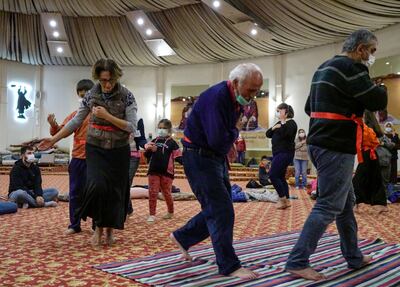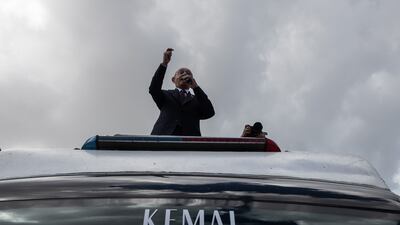Most profiles of Kemal Kilicdaroglu describe Turkey’s main opposition presidential candidate as rather reserved and lacking charisma, in sharp contrast to the dynamism of President Recep Tayyip Erdogan.
But after crafting what may be the most viral social media post in Turkish history, Mr Kilicdaroglu is suddenly as hot as Taylor Swift. Last week, with a single-word caption, he posted on Twitter a three-minute video of himself at his desk speaking frankly about identity and the choices we make.
Within two days, 100 million people had seen the tweet and nearly 28 million had watched the video (and they say Twitter is dead). It is reportedly the most popular video on Twitter since the start of 2022, topping others by the likes of Lionel Messi and Elon Musk.
It easily bested what many view as the most viral Turkish video, the rap song “Susamam”, which tallied 15 million views in four days in 2019. That video angrily highlighted a slew of social and economic problems and emerged as an anti-government anthem; Mr Kilicdaroglu’s provocation was much more subtle, and yet more of a shock.
“I am Alevi,” he declared, breaking an unspoken taboo before urging young voters to usher their country into a new era of virtue and unity.
Just as the Madrigal family of the Disney film Encanto famously does not talk about Bruno, most Turks do not talk about Alevism, at least not publicly. This is mainly because of a long history of discrimination.
Not to be confused with Alawites, Alevis are Turkey’s second-largest religious group after Sunnis, representing a fifth of the population, or some 15 million people. More akin to Sufism than Shiism, Alevi belief is a heterodox form of Islam, rather than orthodox. Over the centuries, the group has regularly faced persecution and marginalisation.

Turkey’s never had an Alevi president or prime minister, and some opposition leaders opposed naming Mr Kilicdaroglu as their presidential candidate as they feared his Alevi heritage would drive voters away.
But Mr Kilicdaroglu aims to turn all that on its head. Observers described the video as courageous and historic; it’s also powerfully sincere — a quality in short supply among too many politicians these days. Officials from the ruling Justice and Development Party (AKP) have taken the high road in response; one argued that Mr Kilicdaroglu sought to shift the focus onto identity because he fell short when it came to talent.
Nonetheless, some of their backers took a harder line. “May the mere memory of Sultan Selim keep your cult from power,” tweeted analyst Tallha Abdulrazaq, a regular contributor to government-run broadcaster TRT World. This comment sparked widespread outrage, with many reporting the tweet to Twitter as hate speech.
Visiting earthquake-hit Adiyaman province during Eid Al Fitr, Mr Kilicdaroglu was met by angry mobs, who shouted slurs and insults before assaulting his vehicle convoy. He ended up cancelling the rest of his stops and returning to Ankara.
The video seems to have stirred up conservative anger, though it’s impossible to gauge the extent of its political success until the election on May 14. It is clear, however, that rather than moving the debate beyond identity — “we’re not going to talk about identities anymore,” he asserts in the video — Mr Kilicdaroglu has put identity front and centre.
At the same time, he also created a new platform for catharsis. The video’s enduring impact may be social, rather than political, like an Alevi #MeToo or #BlackLivesMatter. “Is it possible I’ve never looked at a screen before and seen someone saying, ‘I’m Alevi’?” wondered Sinan Erensu, lecturer at Istanbul’s Bogazici University. “I don’t think I have.”
Mr Kilicdaroglu’s openness spurred Can Ozdemir, a 30-year-old computer engineer from Izmir, to explain in a tweet why he has never met his grandparents. Back in the 1990s, his mother’s parents forbade her from marrying his father because he was Alevi, so she was forced to leave her home and family to tie the knot.
She stayed away until Mr Ozdemir was 10 years old, when his mother took him to visit her home village in Aksaray province, hoping for a reunion. Her parents barred them from entering their home. “My mother and I returned to Izmir in tears,” he recalled.
His tweet has tallied more than a million views in just three days, and it’s one among hundreds. Oftentimes, this is how change begins.


